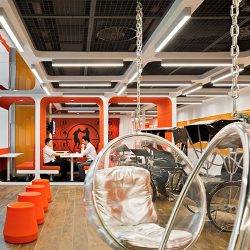To provide the best experiences, we use technologies like cookies to store and/or access device information. Consenting to these technologies will allow us to process data such as browsing behaviour or unique IDs on this site. Not consenting or withdrawing consent, may adversely affect certain features and functions.
The technical storage or access is strictly necessary for the legitimate purpose of enabling the use of a specific service explicitly requested by the subscriber or user, or for the sole purpose of carrying out the transmission of a communication over an electronic communications network.
The technical storage or access is necessary for the legitimate purpose of storing preferences that are not requested by the subscriber or user.
The technical storage or access that is used exclusively for statistical purposes.
The technical storage or access that is used exclusively for anonymous statistical purposes. Without a subpoena, voluntary compliance on the part of your Internet Service Provider, or additional records from a third party, information stored or retrieved for this purpose alone cannot usually be used to identify you.
The technical storage or access is required to create user profiles to send advertising, or to track the user on a website or across several websites for similar marketing purposes.
 Employees who feel they are a good fit for their role and the culture of their company are 36 percent more productive, claims a new report from ThriveMap (registration). The paper claims to reveal what a difference feeling like a natural fit for a job and organisational culture makes to employees. The survey of 1,000 people used in the report claims that employees who felt they fit their role and the culture of their employer rated their productivity at 7.2 out of 10. This compares to just 5.3 out of 10 for those employees who felt they were a poor fit for both these factors.
Employees who feel they are a good fit for their role and the culture of their company are 36 percent more productive, claims a new report from ThriveMap (registration). The paper claims to reveal what a difference feeling like a natural fit for a job and organisational culture makes to employees. The survey of 1,000 people used in the report claims that employees who felt they fit their role and the culture of their employer rated their productivity at 7.2 out of 10. This compares to just 5.3 out of 10 for those employees who felt they were a poor fit for both these factors.



































May 1, 2019
Your company has a culture, whether you have designed one or not
by Jonathan Richards • Comment, Workplace
(more…)